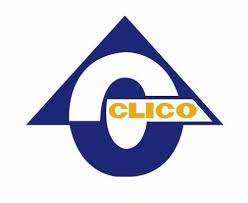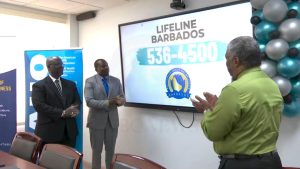
CMC – In Trinidad, the Central Bank of Trinidad and Tobago (CBTT) says it has relinquished “emergency control” over Colonial Life Insurance Company (CLICO) that collapsed in 2009 with billions of dollars in the red.
In a statement posted on its website, the CBTT, which was appointed under the Central Bank Act to exercise such control since 2009, said it will hold a news conference on December 6, where Governor Dr. Alvin Hilaire and CLICO executive chairman, Clair Gomez-Miller will “discuss the exit and its implications”. It said it had relinquished the “emergency control” as of December 1, this year.
The CBTT assumed control of and carried on the affairs of CLICO and took over all the “property and the undertakings of that institution including, without limitation, all freehold and leasehold properties, contracts, shares and securities”.
The CBTT was also to “investigate the affairs of CLICO and its affiliated institutions and appoint a person or persons for that purpose.
In addition, the Central Bank had to “take all steps it considers necessary to protect the interests and preserve the rights of policyholders and creditors of CLICO; acquire or sell or otherwise deal with the property, assets and undertakings of or any shareholding in CLICO, at a price to be determined by an independent valuer (and) restructure the business or undertaking of CLICO or reconstruct its capital base”.
The announcement by the CBTT comes as the chair of the of the subcommittee on insurance for the Eastern Caribbean Currency Union (ECCU), Antigua and Barbuda’s Prime Minister Gaston Browne, said he is not satisfied with the response from his Trinidad & Tobago counterpart regarding the non-payment of compensation arising from the collapse of CLICO and British American Insurance Company in 2009.
Browne has already indicated that a decision had been made by the union to have the Trinidad-based Caribbean Court of Justice (CCJ), which also serves as an international tribunal, to adjudicate the matter.
The currency union groups the islands of Anguilla, Antigua & Barbuda, Dominica, Grenada, Montserrat, St Kitts-Nevis, St Lucia, and St Vincent & the Grenadines.
Chairman of the CLICO Policyholders Group (CPG), Peter Permell, speaking on a radio programme here Friday, said 13 years after the collapse, the authorities are returning CLICO “without ensuring the over 15,000 policy holders were paid…the balance of money contractually owed to them by CLICO.
“That is particularly so in circumstances where the government has been repaid all money, I want to repeat, all money that was advanced to CLICO as a result of the bailout and in light of the fact that CLICO is now in the black…to the tune of billions of dollars,” Permell told radio listeners, describing the conglomerate “as extremely profitable.
“However, I hasten to add that we are not daunted and as such we are propose to request an early meeting with the management of CLICO…to address the situation with a view to arriving at an amicable solution.”
In October, the London-based Privy Council dismissed an appeal by the CBTT after it had omitted a local insurance company from a competitive bidding process regarding of the sale of the traditional insurance portfolios (TIPS) of CLICO and British-American Insurance Company (Trinidad) Ltd (BAT).
In 2009, the Central Bank assumed control of both insurance companies following their collapse and adopted a resolution strategy to ensure their financial stability. As part of that resolution strategy, the Central Bank decided to sell CLICO and BAT’s TIPs to an insurance company who would be capable of managing them into the future and decided to do so through a competitive bidding process.
Maritime is considered one of the largest insurance companies in Trinidad and Tobago and took part in the competitive bidding process of CLICO and BAT’s TIPs organised by the Central Bank. At the end of that process, the Central Bank decided to award the sale of CLICO and BAT’s TIPs to Sagicor Life Inc (Sagicor).
But Maritime launched a number of complaints regarding the bidding process, including that the award of the sale to Sagicor was irrational and that the procedure adopted was unfair.
It brought an application for leave to apply for judicial review of the Central Bank’s decision to award the sale of CLICO and BAT’s TIPs to Sagicor and also sought constitutional redress in respect of alleged violations of its rights under Sections 4(b) and/or (d) of the Constitution of Trinidad and Tobago.
In its ruling after hearing the matter in July this year, the Privy Council said it considers that the appeal in respect of the constitutional challenge is not made out, there having been no application to strike out that challenge.
“Furthermore, there is evidential material supporting the challenge so that even if the appellant had made an application to strike out the constitutional challenge, the Board would have dismissed that application,” it added.
“In conclusion, the Board considers that not only is there an arguable case with a reasonable prospect of success that the appellant’s oversight of the bidding process and its subsequent approval of the sales was amenable to judicial review, but also that it was in fact amenable to challenge, though the exact public law duties engaged are to be determined at the hearing on the merits.
“This ground of appeal does not meet the threshold of some exceptional circumstance establishing plainly that leave should not have been granted. Rather the courts below were plainly correct in relation to the amenability ground. The Board considers that this ground of appeal is not made out,” The Privy Council added.
In 2019, the Trinidad and Tobago government said it is “finally reaching a conclusion” regarding the collapse of the insurance giant with Finance Minister Colm Imbert, telling Parliament that the government had pumped an estimated TT$23 billion (One TT dollar=US$0.16 cents) in a bailout plan for the company.
He told legislators that when it came to office in 2015, the Keith Rowley government found the CL/Financial/ CLICO arrangement “in disarray with the shareholders and government in conflict and without any clear sight of a resolution”.
“Further, in 2011, an arbitration caused by the then government’s arbitrary transfer of shares in Methanol Holdings Trinidad Limited to CLICO without first offering the shares to the minority shareholder, concluded with the sale of the asset at a price significantly lower than market, losing three billion dollars in value in the process.”
Imbert said that in addition, following 17 extensions of the original 2009 Shareholder’s Agreement, without any clear repayment plan, the present administration had to act quickly when the former shareholders made a grab for CL Financial.
“In the interest of taxpayers, who had pumped billions of dollars into the CLICO bailout, we had no alternative but to apply to the High Court to liquidate the company and on September 15, 2017, the High Court ruled that the operations of CL Financial would be fully placed in the hands of liquidators appointed in July 2017.”
Imbert said that this liquidation process is now ongoing in the context of an orderly settlement of the debt owed by CL Financial to Trinidad and Tobago.
The Finance Minister said that in parallel, the Deposit Insurance Corporation, the liquidator of CLICO Investment Bank (CIB), “after many false starts in the pre-2015 period”, has almost completed its assignment, with a substantial proportion of the debt being settled, allowing substantial shareholdings in blue chip companies, such as Republic Bank, to be transferred to the State.
“Further, the Central Bank of Trinidad and Tobago recently announced the commencement of the final stages of the CLICO resolution with the sale of CLICO’s traditional insurance portfolio to a well-capitalised local insurance company.”
In 2013, the former CLICO chairman, Lawrence Duprey, blamed the world recession and not mismanagement for the collapse of CLICO the flag ship company of the CL Financial group.





More Stories
West Terrace Primary celebrate 2024 NAPSAC victory
Farmer working to grow interest in pineapple farming
Lifeline Barbados officially launched